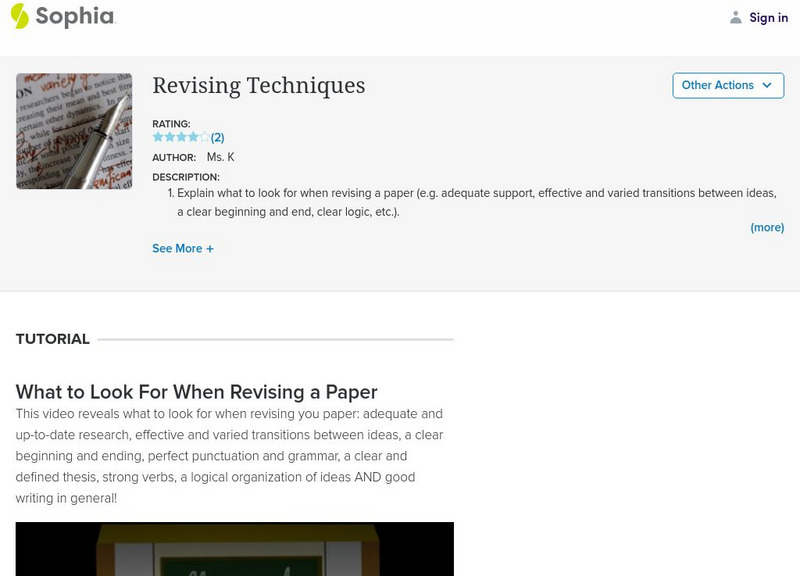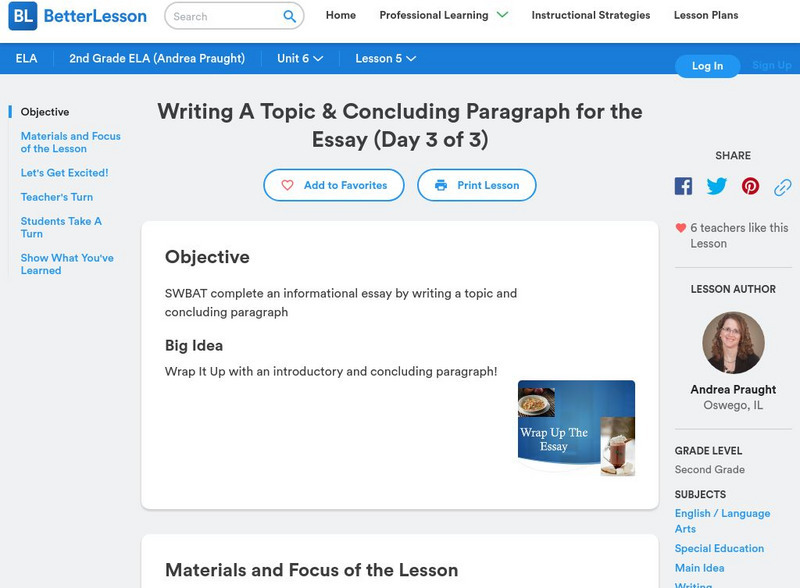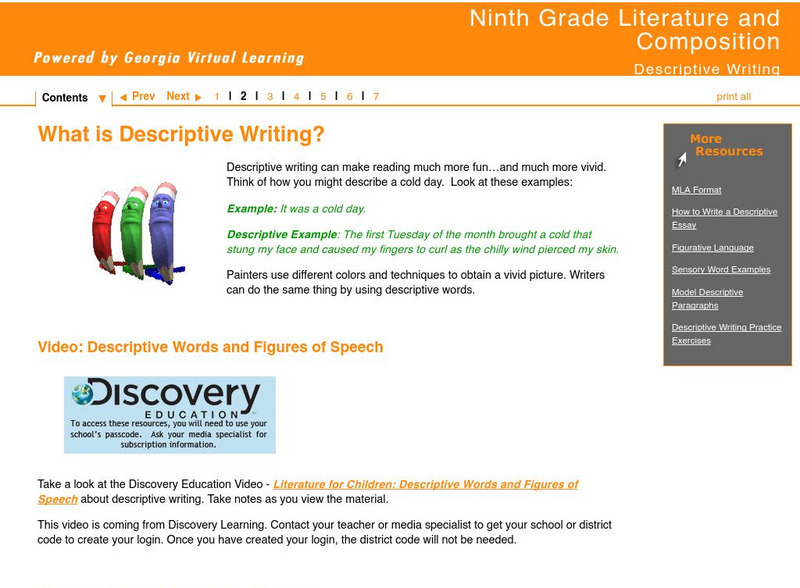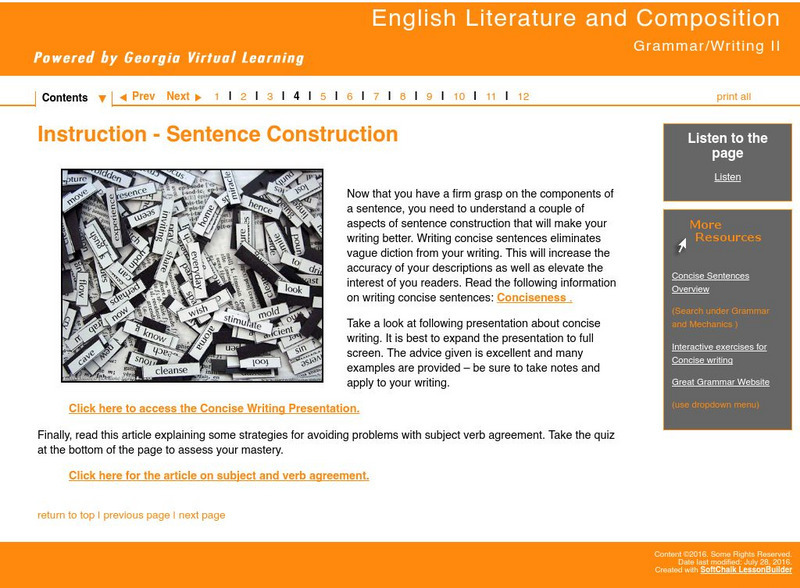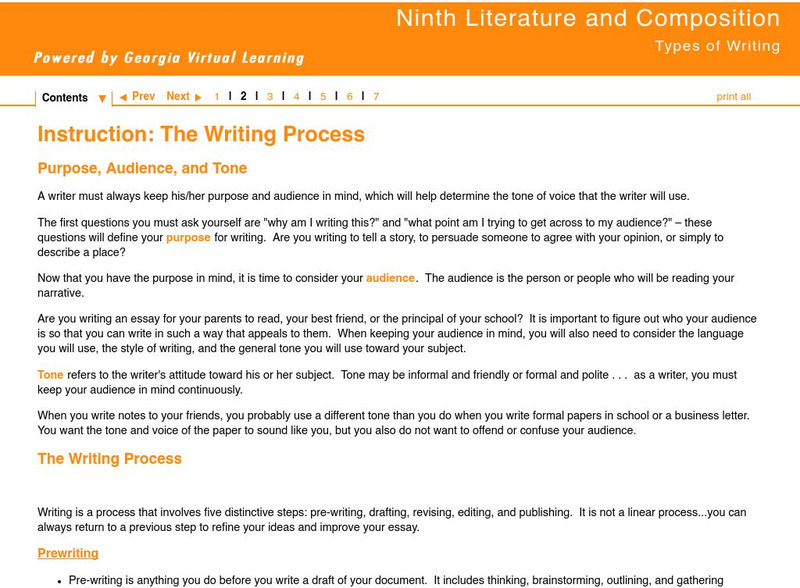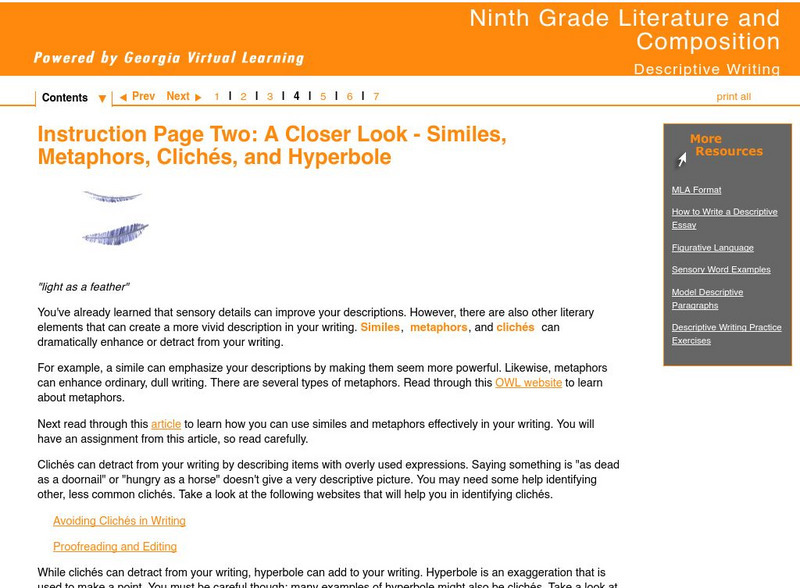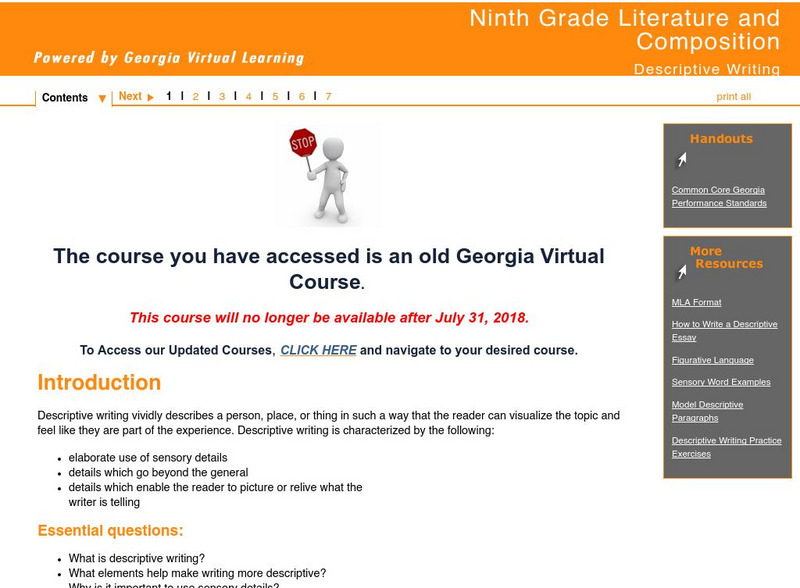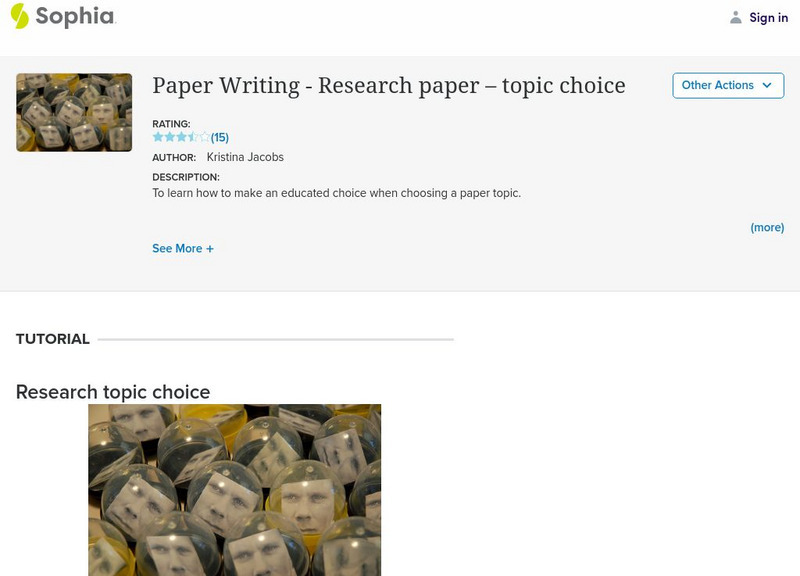Hi, what do you want to do?
Transforming Education
Growth Mindset Strategies
Help your students develop a growth mindset with a list of sample strategies for prioritizing efforts instead of results.Pupils learn how to embrace mistakes, set high expectations, and focus on process over product.
EngageNY
TASC Transition Curriculum: Workshop 8
Lights, camera, action! Math educators consider how to improve their instruction by examining a model of the five-practice problem-solving model involving a movie theater. Participants examine cognitive demand in relation to problem...
New York State Education Department
TASC Transition Curriculum: Workshop 11
You'll C-E-R a difference in classroom achievement after using a helpful instructional activity. Designed for economics, civics, government, and US history classes, participants practice using the CER model to craft arguments about...
EngageNY
TASC Transition Curriculum: Workshop 6
Is a college education necessary for success in today's world? The class investigates the question, along with others at the end of the sixth workshop in a 15-part series. The lesson has four parts with multiple activities and...
New York State Education Department
TASC Transition Curriculum: Workshop 5
Are video games sports? Pupils investigate this question as well as various nonfiction selections to learn more about claims and the support that defines them. All of the selections mimic the rigor on state tests and encourage close...
New York State Education Department
TASC Transition Curriculum: Workshop 4
Why is it important to use precise language? Participants explore this question in the fourth activity in a series of 15 on effective instruction. Perfect for all content areas, the activity promotes appropriate language choice through...
Transforming Education
Growth Mindset Toolkit
A nine-slide presentation provides educators with practical ways they can help young people develop a growth mindset, a key competency in social-emotional learning.
EngageNY
TASC Transition Curriculum: Workshop 12
How can opinions slant facts? Workshop participants learn how to examine primary and secondary sources and identify the author's point of view. They also examine how visual art impacts the meaning and rhetoric of sources. Full of...
Sophia Learning
Sophia: Revision Techniques
This tutorial focuses on revision techniques; it offers a video of what to look for when revising, text of 5 steps to revising using teacher notes, a PDF revision checklist, and a slideshow of other revision techniques such as reading...
Texas Education Agency
Texas Gateway: Teaching Persuasive Text: Writing Persuasive Essays
This resource explores instructional practices for persuasive essay writing in English language arts, mathematics, science, and social studies classes. It uses original content from the Texas Adolescent Literacy Academies: Focus on...
Better Lesson
Better Lesson: Writing a Topic & Concluding Paragraph for the Essay
This lesson is a final step towards supporting young scholars to practice writing an informative/explanatory paragraph conveying complex ideas and presenting information clearly and accurately. Second-grade students can usually write a...
Sophia Learning
Sophia: Revision Techniques: Using a Professor's Notes
This slideshow lesson focuses on revising using teacher comments. It discusses the advantages of teacher notes on rough drafts, how to use the notes to improve the final, examples from sections of marked student papers, editing and...
ReadWriteThink
Read Write Think: Writing Workshop: Helping Writers Choose and Focus on a Topic
Young scholars engage in writing workshop, using a timeline to focus in on and write about a specific event.
Georgia Department of Education
Ga Virtual Learning: Ninth Lit and Composition: Types of Writing Instruction
This lesson focuses on the four types of writing: narrative, descriptive, expository, and persuasive including definition and characteristics of each and an interactive activity over they types. It also provides links to more information...
Georgia Department of Education
Ga Virtual Learning: Descriptive Writing: What Is Descriptive Writing?
This lesson focuses on what descriptive writing including defining it and discussing the characteristics. It includes links to several websites about descriptive writing including the Discovery Education Video: "Literature for Children:...
Georgia Department of Education
Ga Virtual Learning: Grammar/writing Ii: Instruction: Sentence Construction
This lesson from a grammar and writing unit focuses on sentence construction including writing clear, concise sentences useing the correct subject-verb agreement. It features links to The Writer's Handbook: Clear, Concise, Sentences,...
Georgia Department of Education
Ga Virtual Learning: Ninth Lit and Comp: Types of Writing: The Writing Process
This lesson focuses on the writing process including understanding purpose, audience, and tone and the parts of the writing process: prewriting, drafting, revising, editing, and publishing.
Georgia Department of Education
Ga Virtual Learning: Descriptive Writing: Similes, Metaphors, Cliches, Hyperbole
This lesson focuses on figurative language used in descriptive writing including similes, metaphors, cliches, hyperbole. It offers multiple links to websites pertaining to figurative language in descriptive and creative writing; an...
Georgia Department of Education
Ga Virtual Learning: Ninth Grade Literature and Composition: Descriptive Writing
This lesson focuses on descriptive writing including discussing what it is and the chararacteristics. It provides links to the web articles: "How to Write a Descriptive Essay," "5 Model Descriptive Paragraphs," "MLA Formatting and Style...
Other
Grade 1 Informative Writing Lessons
Authored by the Tsehai Russell and Della Wright, CLR fellows, this resource provides a 5-day unit of informative writing lessons. Focus lessons related to facts and opinions and paragraph writing. This series is supported by the Academic...
Other
Pressbooks: Let's Get Writing: Chapter 3: Argument
This chapter focuses on writing an argument including what is an argument, types of arguments, elements of arguments, layouts, claims, counterarguments, evidence, validity, types of fallacies, and more. W.9-10.1 Arguments, W.11-12. 1...
Georgia Department of Education
Ga Virtual Learning: Grammar/writing Ii: Instruction Clauses
This lesson on grammar and writing focuses on clauses including dependent and independent clauses and run-on and comma splice sentences. It features links to "Purdue OWL: Identifying Independent and Dependent Clauses," "Purdue OWL:...
Sophia Learning
Sophia: Paper Writing: Research Paper: Topic Choice
This tutorial focuses on choosing a topic and narrowing or expanding the focus to fit the requirements for a research paper. It provides tips like clustering, using a Venn Diagram, Google Scholar, etc. to find and narrow the topic. It...
Sophia Learning
Sophia: Revising Thesis and Topic Sentences
This tutorial focuses on revising the thesis and topic sentences using two videos and two slideshows. The first video discusses a 3-step revising process for making sure the thesis fits the paper; the second video focuses on what...
Other popular searches
- Writing Focus
- Clear Focus Writing
- Writing Focus Statements
- Writing Focus Questions
- Writing Focus Coherence
- Maintaining Focus in Writing
- Central Focus in Writing
- Teaching Focus in Writing
- Scoring Focus of Writing
- Narrow the Writing Focus













